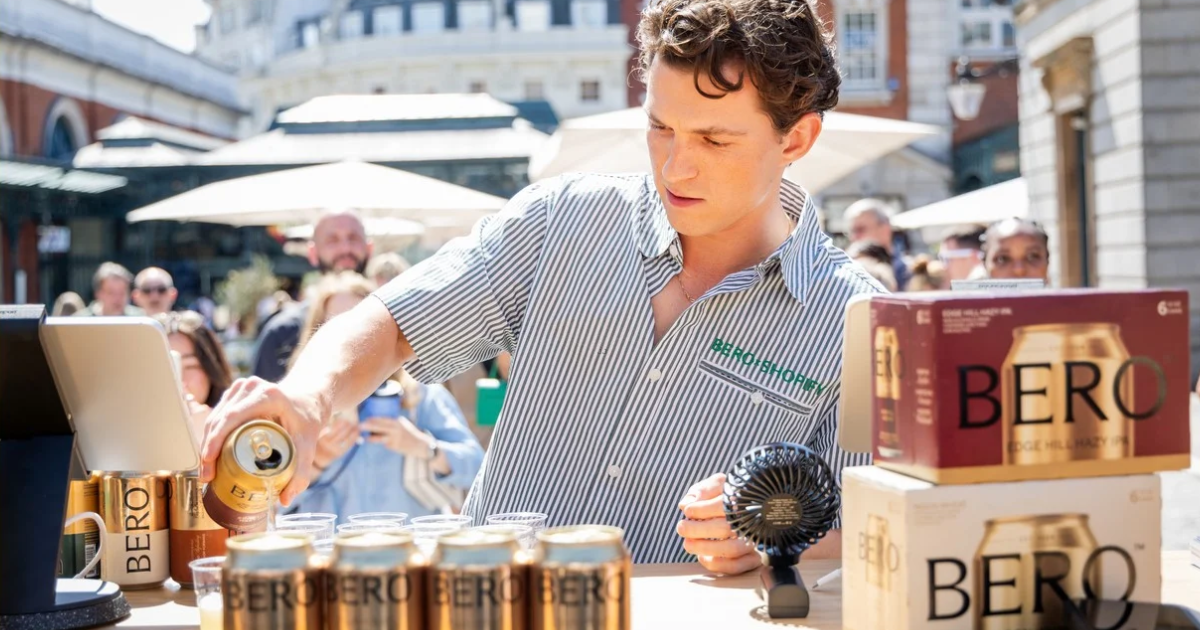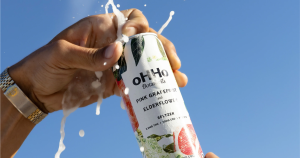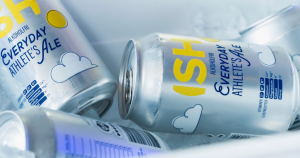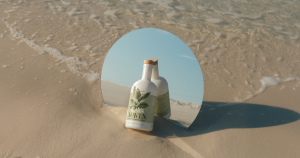Non-alcoholic beer has quietly become one of the most dynamic corners of the global drinks market, and celebrities have taken notice.
According to IWSR, non-alcoholic beer is projected to overtake ale as the world’s second-largest beer category this year. While total beer volume slipped by roughly 1% in 2024, non-alc beer grew 9% worldwide. It’s now expanding at an estimated 8% annual clip through 2029, even as traditional ale volumes continue to decline.
That surge hasn’t gone unnoticed by Hollywood. From Tom Holland to Charlie Sheen, a new wave of famous faces is rushing into the category.
The New Faces of Non-Alc Beer
Holland’s BERO has quickly become one of the best examples of this new era, a brand born from his own sobriety journey. While it may be one of the most notable, it’s certainly not the only celebrity-backed non-alc beer brand that’s made recent headlines:
Comedian John Mulaney and actor Charlie Sheen have also entered the scene this year, both quite recently. These men are publicly sober, and both have leaned into humor and redemption rather than “wellness” messaging.
Sheen’s Wild AF Brewing launched with a cinematic, self-aware ad campaign, which is a solid move considering Sheen’s past controversies. Mulaney’s partnership with Years plays his image for laughs, and being a comedian, this makes perfect sense.
Then there’s George Clooney, whose pivot from Casamigos tequila to a non-alc beer venture marks something deeper than diversification.
Having already sold his tequila brand to Diageo for $1 billion, his return to beer reads like a statement about the market’s next frontier. For celebrities looking to maintain relevance in the beverage industry, moderation now sells better than excess.
Should You Bring a Celebrity On Board?
Here’s the real question for founders: Does your brand need a celebrity?
In short, not necessarily. But if you do, it has to be for the right reasons. Celebrity partnerships can drive cultural credibility and instant awareness, but they can also backfire fast if the alignment isn’t right. Let’s break that down.
1. Audience Alignment
Before you even think about a partnership, ask whether the celebrity’s audience overlaps with your own.
When Formula One driver Lewis Hamilton launched a non-alcoholic tequila brand earlier this year, fans were puzzled. His reputation centers on performance, not partying — but also not drinking culture. The product landed in an awkward space: disconnected from both his fanbase and the category’s broader drinking rituals.
Celebrity recognition doesn’t always equal consumer relevance, so the fit has to be obvious.
2. Authenticity and Credibility
The names we discussed earlier: Holland, Mulaney, Clooney, these partnerships work because they make sense. They’re authentic to who they are in real life, with Holland and Mulaney both being sober, and with Clooney having past investments in the beverage industry.
Compare that to Jennifer Lopez’s Delola, a ready-to-drink spirits line that sparked backlash almost immediately. Lopez has long been open about rarely drinking, and her husband Ben Affleck’s history with alcoholism made the launch feel tone-deaf.
Fans called out the contradiction, and the brand’s debut was overshadowed by questions of integrity. A similar dynamic played out with Blake Lively, whose pivot from the alcohol-free Betty Buzz to the boozy Betty Booze confused her sober-leaning audience.
Remember: Consumers today are hyper-attuned to inconsistency.
3. Commitment and Visibility
Even if the story is right, it only works if the celebrity actually shows up.
Tom Holland’s Wimbledon activation was a masterclass in this. This summer, Holland brought BERO to the stadium, despite having no legitimate partnership. He just showed up, and placed a pop-up bar in Covent Garden with him behind the counter pouring beers.
Contrast that with the quiet fade of lesser-known projects — like Countess Luann’s non-alc rosé, which launched with fanfare and then disappeared when the founder’s involvement stopped.
Celebrity partnerships only work when the person behind them treats the brand as part of their identity, not a random money grab.
You Also Don’t Need One at All
For the record, there’s also a strong case for going without a celebrity entirely.
Athletic Brewing is now the most dominant player in non-alcoholic beer, and it got there without a single spokesperson. The brand built its credibility through purpose, by positioning itself at the intersection of performance and moderation.
Only later did celebrities like J.J. Watt, Lance Armstrong, and chef David Chang join as investors, not figureheads. Athletic didn’t borrow their influence; it attracted it. That distinction matters.
What This Means for Founders
Celebrity involvement can accelerate awareness, but it doesn’t guarantee endurance. For non-alc brands especially, where credibility is everything, the partnership has to be both strategic and sincere.
There’s a general rule of thumb here: If a celebrity helps your brand reach its audience more authentically, it’s worth exploring. If you’re counting on them to create that authenticity for you, it’s a risk.
As the category continues to grow, the real opportunity lies in building brands that move culture on their own merit. When a star joins that kind of story, it amplifies it. But when they’re the story, the shelf life tends to be short.
Because in 2026, the most valuable form of celebrity will be follow-through.






